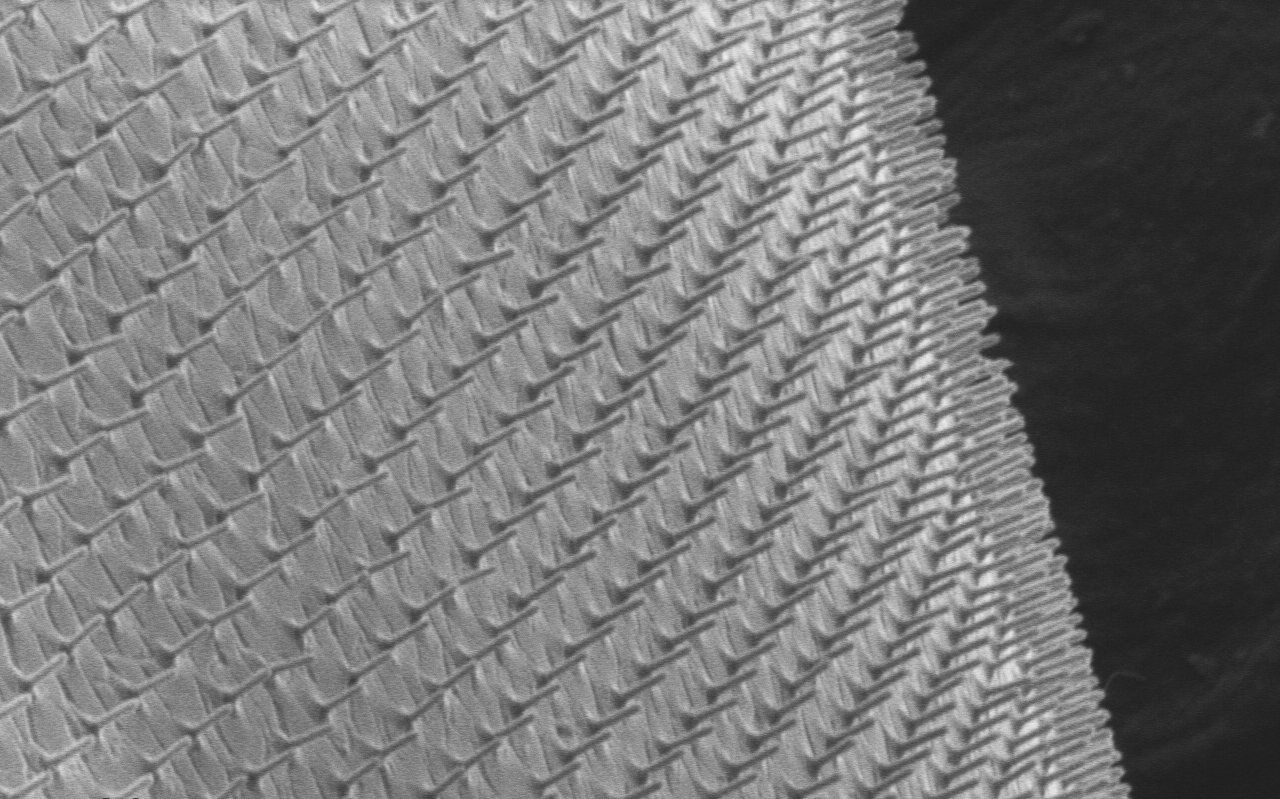Purdue University researchers have developed a new flexible and translucent base for silicon nanoneedle patches to deliver exact doses of biomolecules directly into cells and expand observational opportunities.
“This means that eight or nine silicon nanoneedles can be injected into a single cell without significantly damaging a cell. So we can use these nanoneedles to deliver biomolecules into cells or even tissues with minimal invasiveness,” said Chi Hwan Lee, an assistant professor in Purdue University’s Weldon School of Biomedical Engineering and School of Mechanical Engineering.
A surgeon performs surgery on the back of a hand of a patient who has melanoma. Purdue researchers are developing a new flexible and translucent base for silicon patches to deliver exact doses of biomolecules directly into cells and expand observational opportunities. The researchers say skin cancer could be one of the applications for the patches.
